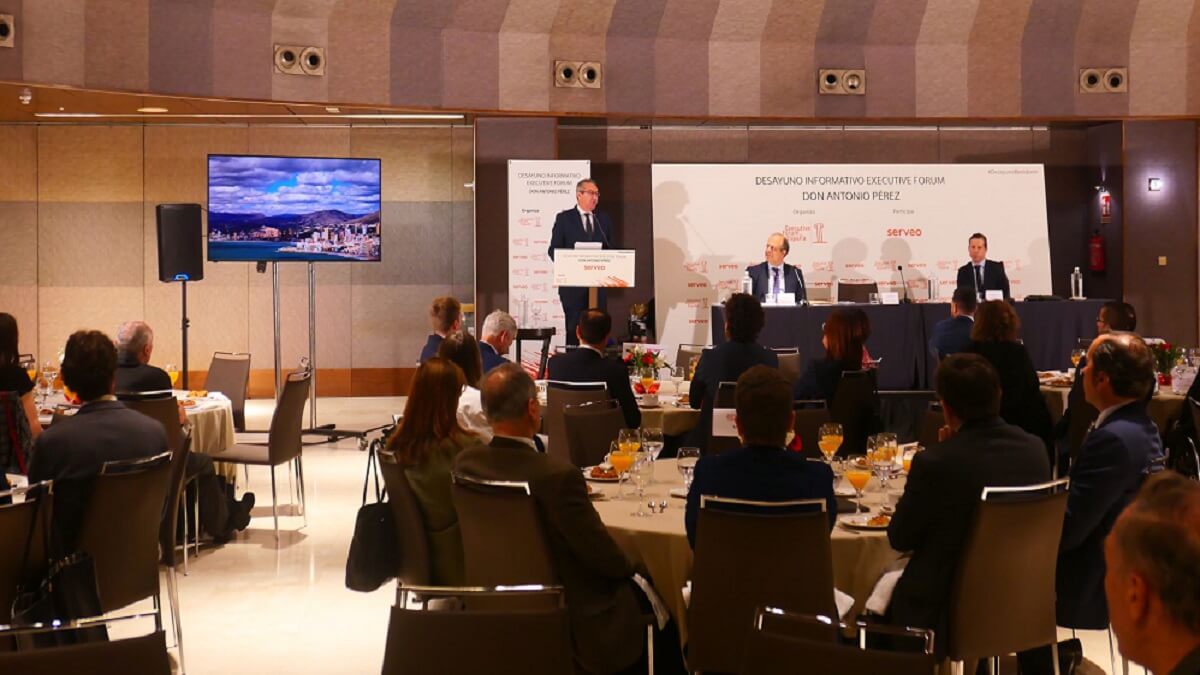Benidorm will host the smart destination platform

‘With only 1% of the Valencian coastline, Benidorm contributes more than 40% of the tourist income to the GDP of the Community and we deliver 1,800 million euros to the State’. These figures summarise, according to the Benidorm mayor, his firm commitment to tourism, although he complains precisely about not being recognised as a ‘tourist municipality’, a gap which he blames on the unfair funding suffered not only by his own municipality, but also by many other municipalities in Spain.
Antonio Pérez chose Madrid and the setting of a breakfast meeting organised by Executive Forum to air these and other complaints, as well as to present his next big project: an innovation HUB for the city, ‘as a focus for attracting talent, development, technological innovation and competitiveness’.
To this end, he has managed to secure Benidorm as the headquarters of the Smart Destination Platform, which will be accompanied by a Sustainability Observatory, a platform which he referred to as ‘a real revolution in public tourism policies’.

In his opinion, this will significantly boost the interconnection of data, both within the city and with respect to many other destinations that have tourism as their main source of income. In this respect, Antonio Pérez revolted against the growing tourism-phobia, ‘spurred on by those who seem to have a strange interest in destroying the country's main industry’. In the same line of argument, he rejected imposing a tourist tax in Benidorm, accusing politicians who accuse certain administrations of complaining about underfunding while refusing to increase taxes of hiding data.
He pointed out that the VAT already paid on all tourist services already finances both the state and the other administrations, except precisely the tourist municipalities, ‘which should have a percentage of that VAT.
As for the possible introduction of a tourist tax, he said that ‘a new additional tax could dissuade more than a few foreign families from preferring other destinations in other countries in a Mediterranean sea whose competition is fierce’.

Asked about the negative side of the tourist industry, he replied that, indeed, the management of a tourist symbol par excellence such as Benidorm must take into account different and varied parameters, such as water and energy consumption, waste production, mobility and environmental measurements or economic rank.
While presenting the data that has allowed Benidorm to have a current offer of 90,000 legal beds and the capacity to manage a peak population of 450,000 inhabitants, he expressed his confidence that the implementation of the HUB will allow the city to be ‘a space for technological testing and generating solutions’. He believes that all of this will increase efficiency in the intelligent management of data, which will enable efficient policies to make ‘Benidorm even more of a place to visit and live in’.
Claiming that his city is the most complete tourist destination in the world, because all kinds of people, of any age, origin and economic capacity, have a place, he dared to predict that ‘if ever tourism were to end in Europe, the last tourist would leave one of Benidorm's three beaches’.








